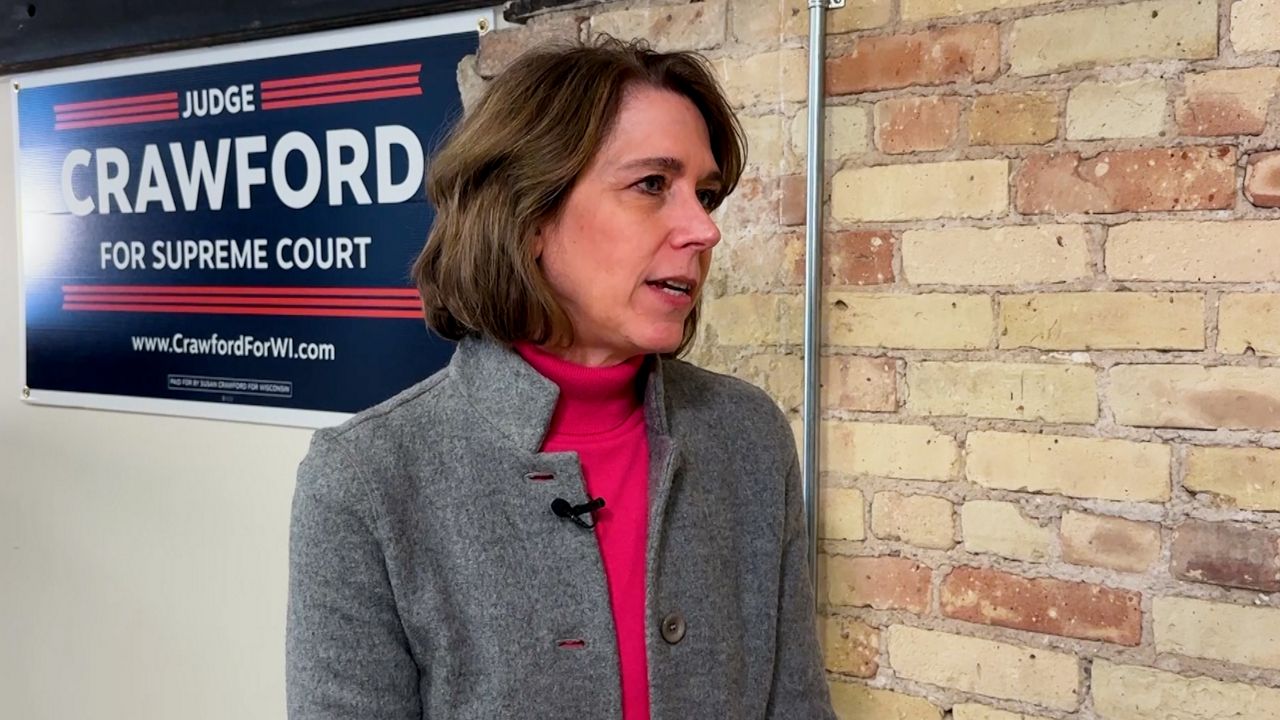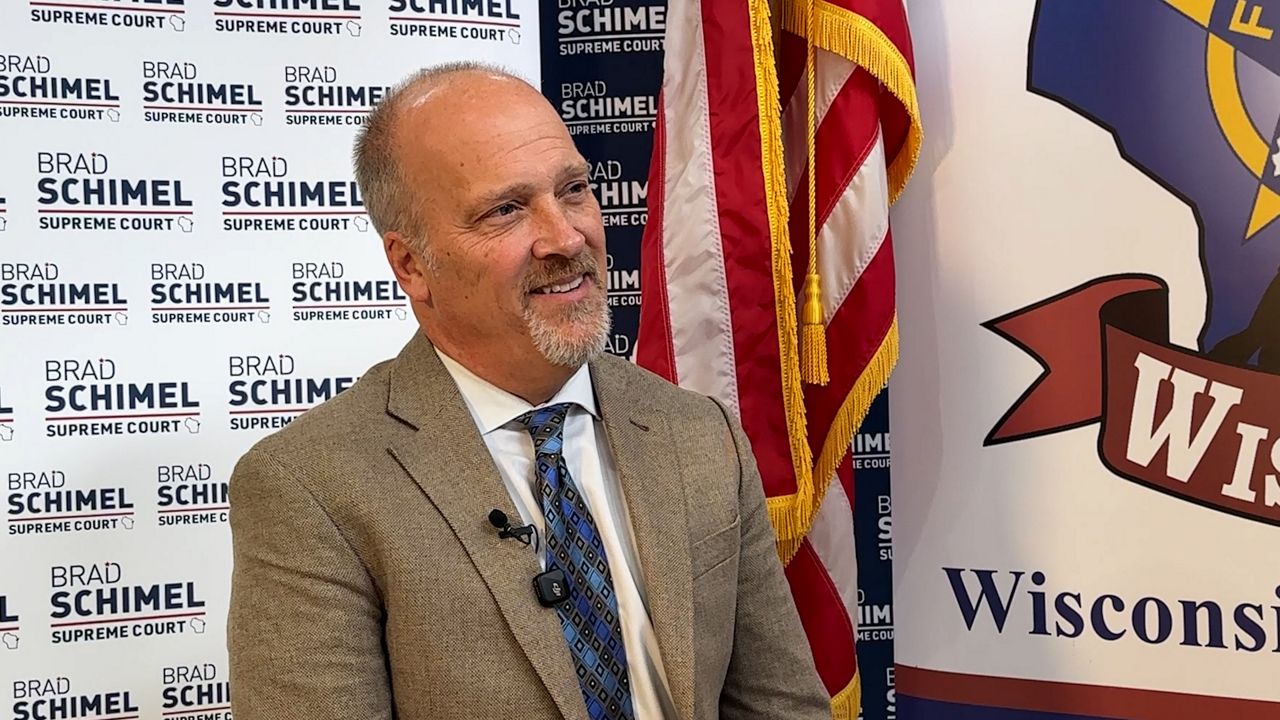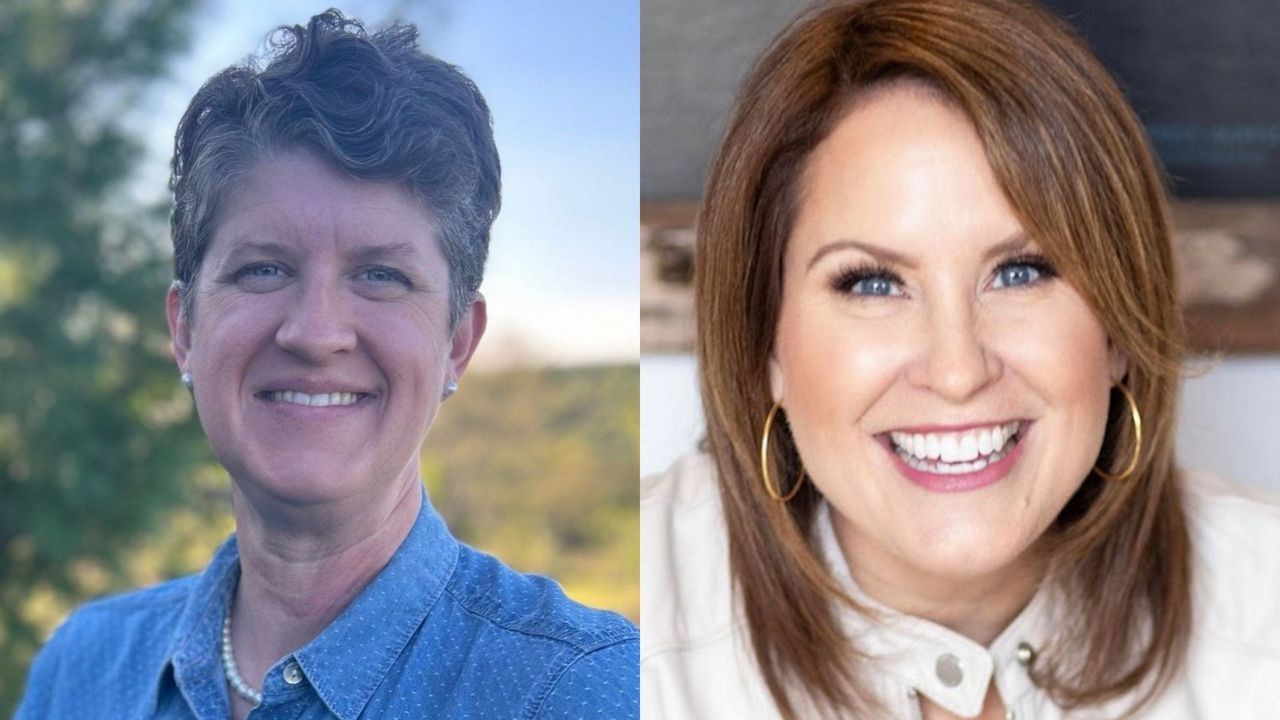MILWAUKEE — The new legislative maps signed into law by Gov. Tony Evers earlier this year pair up a lot of current lawmakers against one another. Some of them are from the same party, while others are from the opposite.
However, that doesn’t mean those legislators will actually face each other. Several already have announced retirement plans, while some are moving, and others are running for another office altogether.
According to WisPolitics, based on the lines alone, there are a total of 15 pairs in the Wisconsin Assembly, with 11 of them being Republican on Republican, three Republican versus Democrat matchups, and just one Democrat against Democrat pairing.
In the Wisconsin Senate, WisPolitics reported 13 incumbents making up six pairings—four Republican on Republican, one Republican versus Democrat, and one Democrat against Democrat.
Unlike in the Assembly, there are also three incumbent lawmakers all paired together in one district under the new maps.
With all those pairings, several state lawmakers will have some big decisions to make, including whether they want to run for reelection—possibly against another member of their own party—and even where if the new maps move them out of their current district.
Under Wisconsin’s residency laws, lawmakers don’t need to live in a district to be a candidate if they move by the time they take office, so depending on what incumbents decide, chances are there will be a lot of primary races across the state come August.
As you might expect, the feelings about all this depend on who you ask.
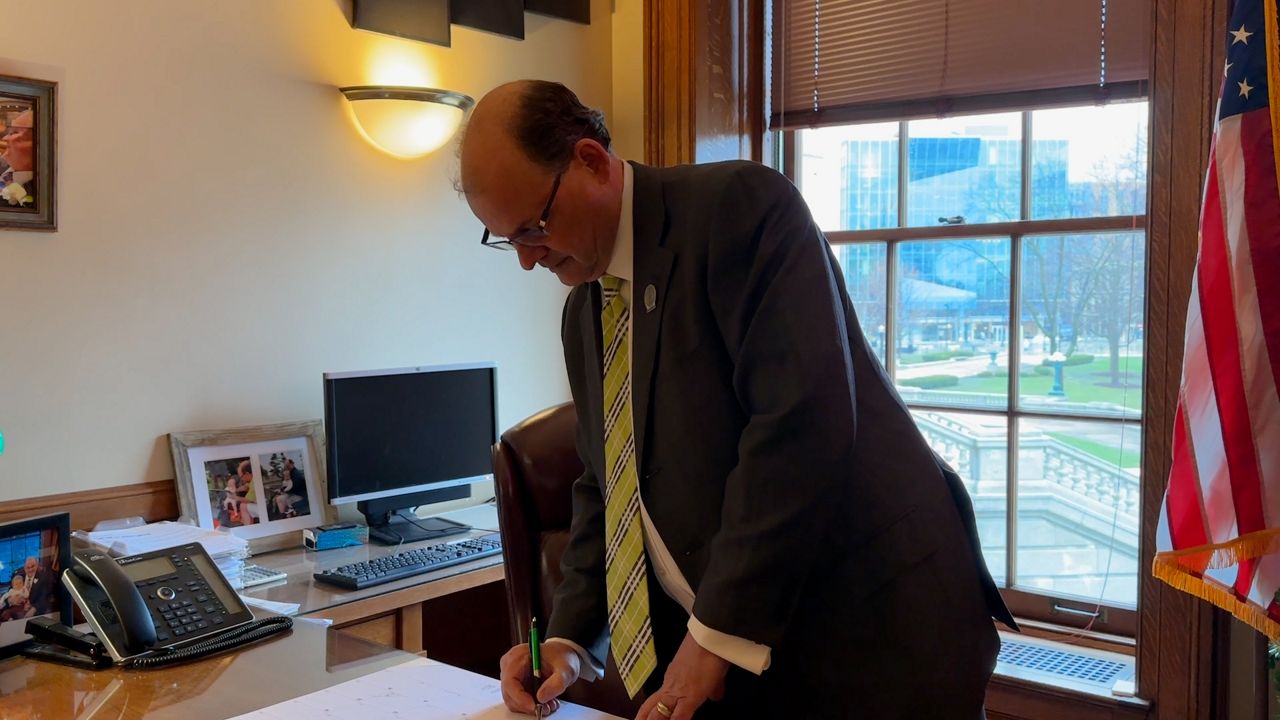
“It’s probably like getting our fingers cut off versus our neck cut off,” State Rep. Michael Schraa, R-Oshkosh, said.
He and fellow Republicans voted in favor of political boundaries drawn by Democratic Gov. Tony Evers.
The move ultimately left Schraa paired with another incumbent from his own party and three choices, in his opinion.
“You can retire, you can move out of your district into a different district, or you participate in a primary,” Schraa explained.
Not ready to retire, Schraa decided he would face his colleague, State Rep. Nate Gustafson, R-Fox Crossing, which is an outcome he doesn’t take personally.
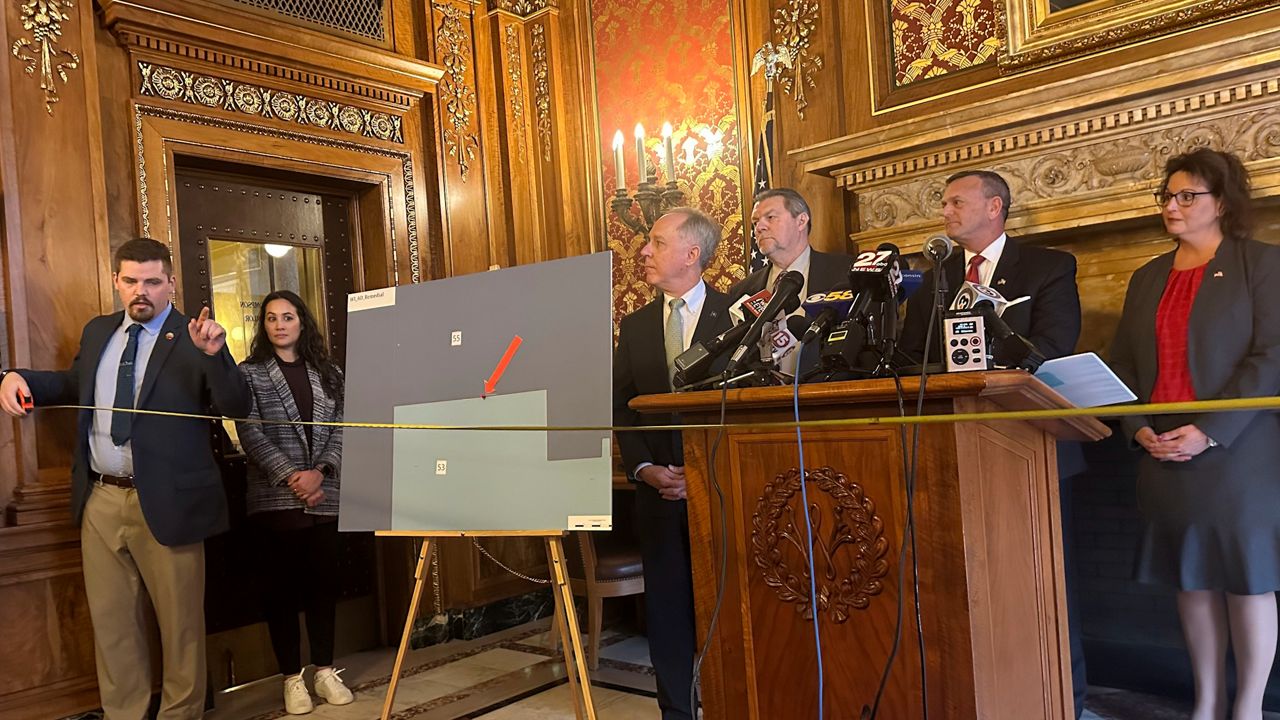
“I guess if I would be my opponent, that got drawn in by 15 feet, I might have those feelings, but I’m smack dab in the middle of the district,” Schraa added.
Though the two will square off in an August primary, Schraa doesn’t see that as a bad thing.
“A primary is good for the district because, especially when two people want to win really bad, they are going to do a lot of work,” Schraa said. “They are going to knock on a lot of doors, and it’s only good for the district, in my opinion.”
Other lawmakers were paired with an incumbent from the opposite party, including State Rep. Robyn Vining, D-Wauwatosa, who originally ran in a red district that she turned purple and later a blue seat.

“You are not going to hear me complain that my seat changed, and therefore something is harder for me,” Vining said. “It’s not my seat. The seat belongs to the people.”
The Wauwatosa Democrat said though more Republican pairings may seem unfair, it’s simple math.
“If you gerrymander yourself a near supermajority, you are going to have a lot of Republicans,” Vining explained. “That means if people end up drawn into the same district, they are very likely to be Republican and Republican. That’s because you gave yourselves so many seats.”
In the suburbs southwest of Milwaukee, State Sen. Julian Bradley, R-Franklin, is about to wrap up his first term and run for a second.
“If you look around the map, you can tell this is not an isolated incident,” Bradley said. “[Evers] has done this to over 30 Republicans where he’s matching them up, and he’s trying to eliminate the voice of the people to make the decision over who’s going to represent them.”
To do that, Bradley plans to move back into the district where he’s already an incumbent instead of facing the Republican he was paired against.
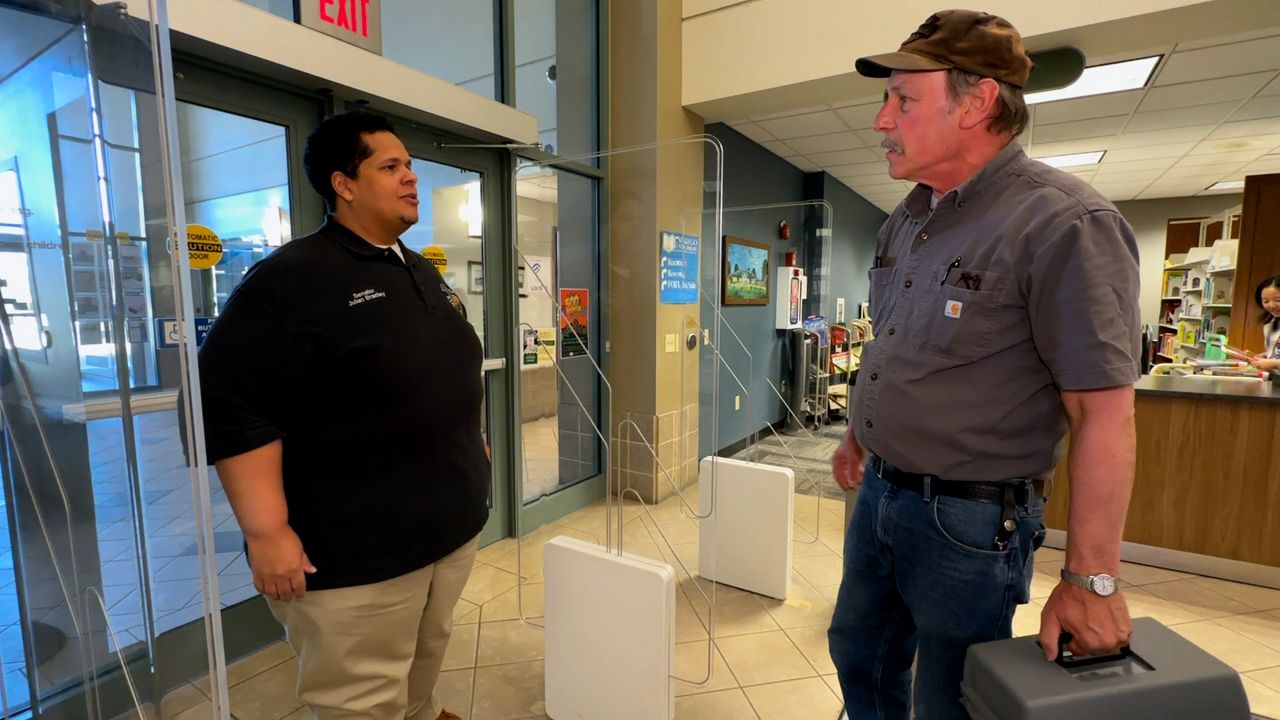
“The governor’s intentional gerrymander literally just separated me from the majority of my district, the majority of my district I’ve been elected to represent, and it’s still intact,” Bradley explained. “So, I’m just moving to continue to give them the opportunity to decide whether or not I can represent them. We have an election coming up in November, and the people that hired me are the ones that are going to make that decision, not Tony Evers.”
Unlike most of his party, Bradley voted against the governor’s maps because he supported the original ones passed by Republicans. Those boundaries were later struck down by the state Supreme Court after the ideological balance flipped for the first time in 15 years.
“I think it sets a dangerous precedent in the future that if you flip the court, you can change the maps,” Bradley said. “That’s not in the constitution.”
State Sen. Jeff Smith, D-Brunswick, has seen his district change before. It’s why he moved his office hours outside in the first place.

“Un-gerrymandering the state may look like gerrymandering to some who have not been engaged so much as they are right now,” Smith said.
Smith was paired against a Republican incumbent, but this time, the new district is not only more compact, in his opinion, it’s truly representative of the Chippewa Valley.
He said Democrats voting against their own governor’s maps came down to a bigger philosophy.
“Let the courts decide this one and take it out of the hands of the Legislature because that’s what we are ultimately trying to get to,” Smith explained.
Unlike senators who live in even-numbered districts whose seats are up now during the presidential election year, Smith won’t have to worry about running until odd districts are up during the next gubernatorial election in 2026.
In the meantime, however, the new maps could help Democrats get closer to their goal of changing how those dividing lines are drawn.
“We have a goal of still changing the systems so that by 2031, we have a system that’s out of the hands of the legislature and left in the hands of a nonpartisan commission who draws the maps and then presents it to the Legislature,” Smith added.








